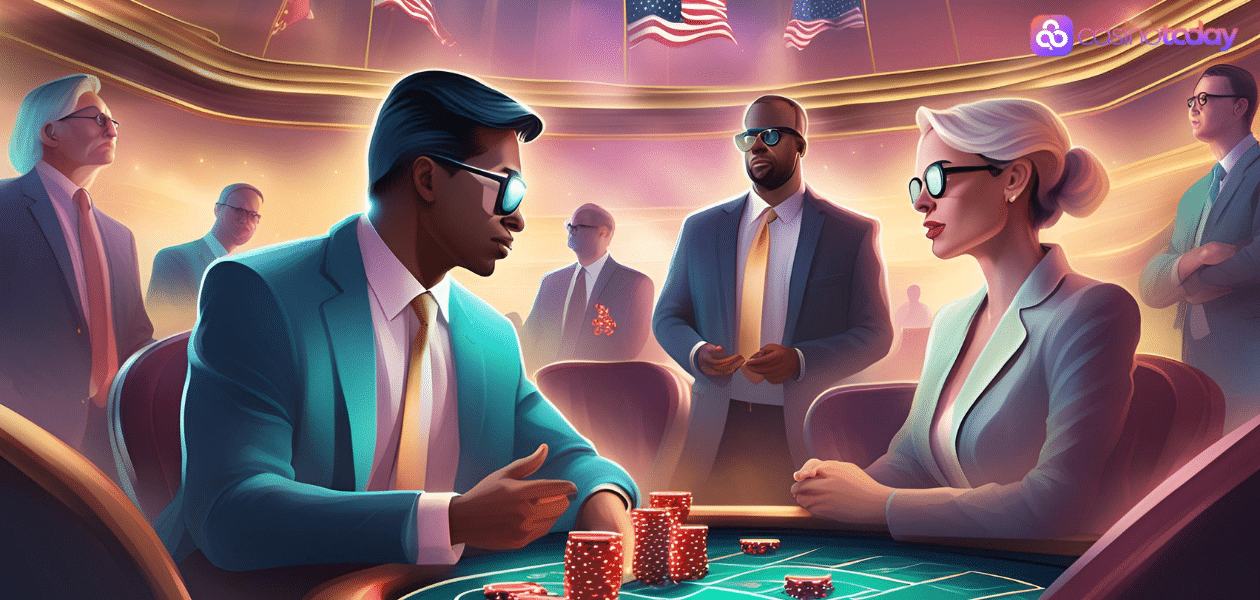Last updated: February 19, 2025

Maryland’s efforts to legalize online casinos through HB 17 and SB 340 face significant opposition in legislative hearings. Concerns from labor unions, brick-and-mortar casino operators like The Cordish Companies and PENN Entertainment, and responsible gaming advocates highlight fears of job losses, revenue declines, and increased problem gambling.
There has been no official move on either Maryland online casino bill in 2025 to this point, while the sponsors of the bills have drawn largely negative comments on their suggestions from commonwealth residents and groups. Testimony on both bills has included concerns of an oppositional nature ranging from job loss at the state’s brick-and-mortar casinos to effects on people who struggle with disordered gaming.
It’s normal for testimony during legislative hearings to be tilted negative. But these feelings in Maryland carry extra weight because the effort to legalize online casinos will ultimately have to be put to a public referendum. The nature of the hearings means that without some dramatic change in the climate, there would be huge campaigns from iGaming opponents to dissuade voters from supporting the measure.
On Feb. 10, the Maryland House of Delegates’ Ways and Means Committee held a hearing on HB 17, which was sponsored by the committee’s chair, Del. Vanessa Atterbeary. The bill asks for a constitutional amendment that would if ratified by voters, create a system of regulation for people to play live dealer games, online poker, online slots, and online table games in Maryland.
That hearing followed a Jan. 29 hearing on SB 340, Maryland Sen. Ron Watson’s bill for the same purpose. Both hearings featured oppositional testimony from Maryland gaming licensees.
A representative of The Cordish Companies, which owns Maryland Live! in Hanover, testified at both hearings. The representative indicated apprehensions about a diminution in revenue at the facility and a resultant decrease in employees.
Watson reported The Cordish Companies to have an iGaming business in the neighboring state of Pennsylvania. Atterbeary said a possible amendment to her bill could strip a Maryland Live! license. The Cordish Companies appeared with PENN Entertainment testifying against the bills at both hearings.
PENN’s stance, however, did not speak to cannibalization concerns specifically.
PENN Entertainment, among others, had other concerns. PENN described fears tied to cannibalization but, in addition, questioned provisions in the bills that would allow the online gaming facilities, lacking a physical presence in Maryland, to receive iGaming licenses. PENN Entertainment representatives said they could support the bills if such provisions were stripped.
MGM Resorts repeated the views of PENN at the hearing on HB 17. Then, at the hearing for SB 340, Churchill Downs was concerned about diminished revenues at its Ocean Downs hub in Berlin.
Other interests also appeared at the hearings preferring licensed casino gaming be limited to onsite action.
Labor unions and responsible gaming supporters also made comment. Others raising objections were Unite Here, the labor union representative of Maryland’s hospitality employees. A Unite Here representative said members were seeing job loss in the regulated online casino action occurring in other parts of the United States.
Supporters of responsible gaming said expanded gaming would mean more Maryland residents would have problem gambling.
HB 17 and SB 340 testimony were not universally opposed. Testimony in favor of the bills was provided by GeoComply, a company that provides location and data services to online gaming operations, and by operators of Maryland off-track betting sites, who noted that minority-owned, small, and women-owned business provisions had to be included in order for them to support the bills.
Also Read:
Proposed US Internet Gambling Framework Recommends 15%-25% Tax Rate
Opposition to HB 17 and SB 340 is now evident but also has future implications for the bills.
Resistance translates into roadblocks for future referendums. Anti-iGaming factions in Maryland are significant in the long term. The most important implication is to deal with the possible referendum either HB 17 or SB 340 might trigger.
Existing opponents of the bills might finance campaigns against the referendum. That is why the support of significant segments of the public is essential to the success of the effort to legalize iGaming.
Both testifying representatives of The Cordish Companies and PENN Entertainment said that, with reservations, the companies would seek iGaming licenses if permitted to do so.
That leaves the most vicious opposition for Maryland citizens to reject iGaming potentially coming from unions.
However, before a referendum becomes a concern, HB 17 and SB 340 will have to be examined by the Maryland Assembly. Debate around the issue of online play in casinos in Maryland has been controlled by opposition to the proposals.